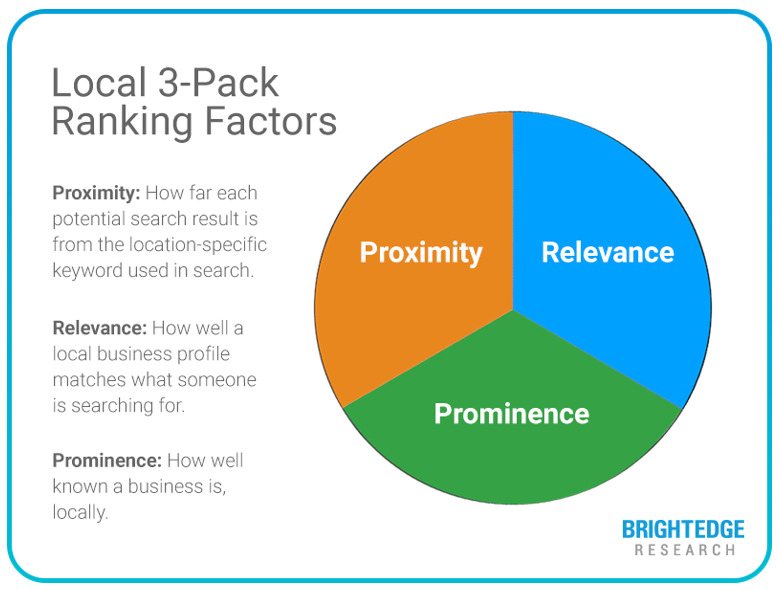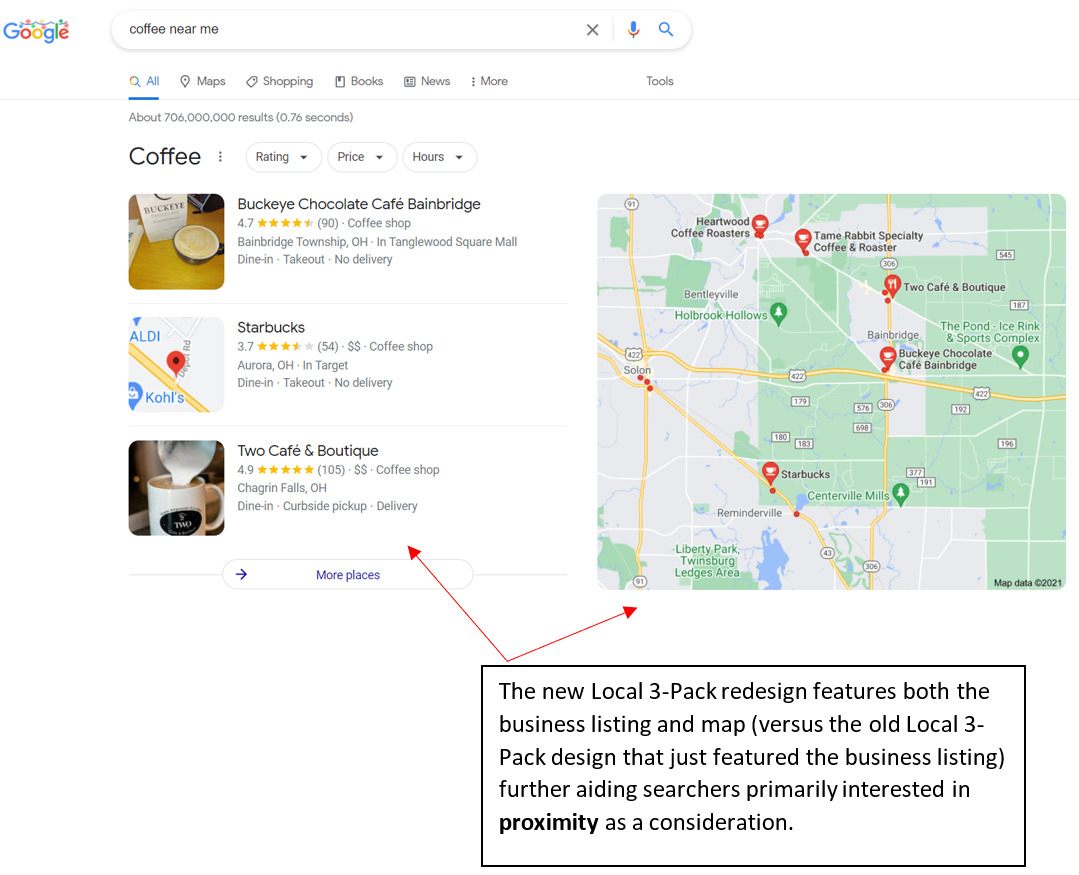At the beginning of December, Google rolled out an algorithm update that is proving to be the most significant update to local search in several years. The search giant confirmed the update last week. In its typical understated fashion, Google described the update as “a rebalancing of various factors we consider in generating local search results.”
 The three factors determining rankings for local searches are: proximity, relevance, and prominence. While Google doesn’t disclose the precise weighting of each factor, it is evident that with the rebalancing, proximity is taking on greater weight. These changes could impact your business listing in local search.
The three factors determining rankings for local searches are: proximity, relevance, and prominence. While Google doesn’t disclose the precise weighting of each factor, it is evident that with the rebalancing, proximity is taking on greater weight. These changes could impact your business listing in local search.
While Google has not announced changes to its guidelines for local search optimization, the update does not change the company’s goals around local search, but rather focuses on improving the quality of local search results. In simple terms, it is achieving this improvement by increasing the weight of proximity in its ranking.
Previously, the relevance of a business listing to the search terms played a greater role in determining the top rankings in local search results. Too often, this meant the SERP would return a search result even if the business was not close to the searcher’s location.
By giving more favor to proximity, the update helps to combat efforts to game the previous algorithm, especially by less-than-local businesses that were appearing in the local SERPs. Over time, more businesses have been able to manipulate their content to win local rankings for searches that, in reality, are geographically distant from the business’ actual location. Following this update, businesses that are in close proximity to the searcher are seeing an improved presence in the SERP, while businesses further away from the searcher are seeing a decline in local share of voice.
While the algorithm update’s emphasis on proximity is the headline, Google’s longstanding, closely related secondary goal of fighting spam is underlined by another observation: we are seeing a reversal, to some degree, in the share of voice for keyword-optimized business names to businesses without keywords in their names. Google has not released any special guidance on this point, but its guidelines against keyword stuffing provide some insight.
All of this is happening concurrently with an update to the local 3-pack results and map design in the SERP. The new design for desktop search places the results on the left side of the page with a new square map to the right of the results. Because it’s being rolled out alongside the algorithm update, it’s not entirely clear yet what impact the design change is having on results.
Key Takeaways
Google’s latest algorithm update for local search is placing greater weight on proximity as a ranking factor. The rebalancing effort is already impacting search results: prominent and relevant business listings that are further away geographically from the searcher are declining in search rank, while closer, relevant businesses with previously less prominence are ranking higher. Reduced consideration for keywords in the business name is additionally protecting the SERP against attempts to game the system.
Going forward, businesses that rely on patronage from local customers have an improved opportunity to reach those customers and should invest the time and effort to optimize their business listings. On the other hand, businesses that were previously performing well in local searches happening relatively far away from their locations will need to recalibrate and find new ways to serve customers in further away locations.

